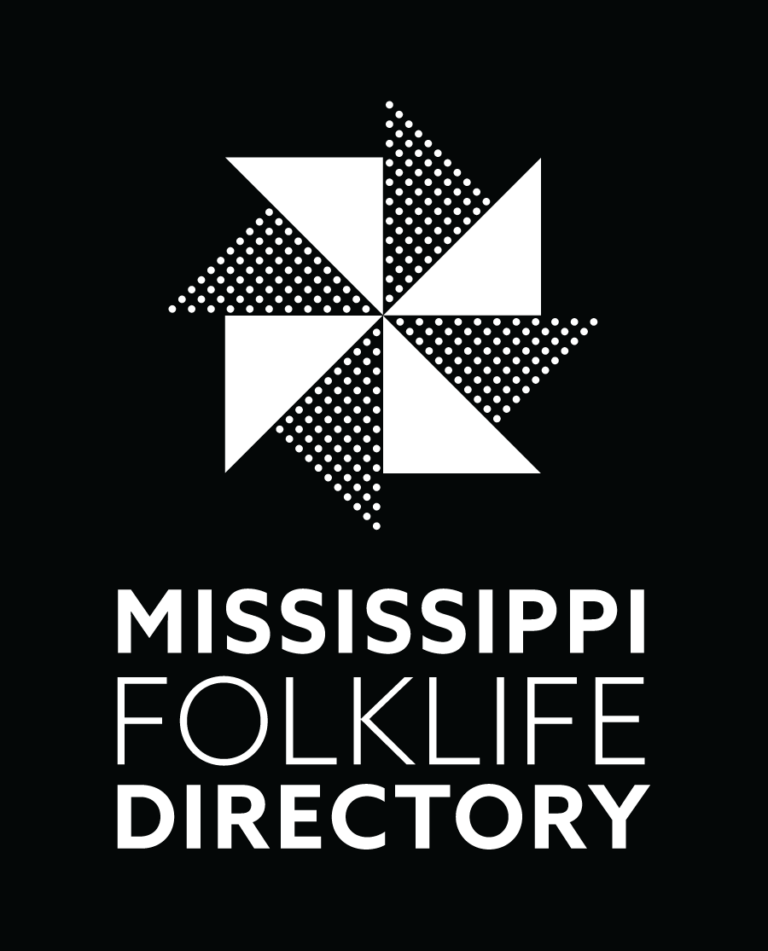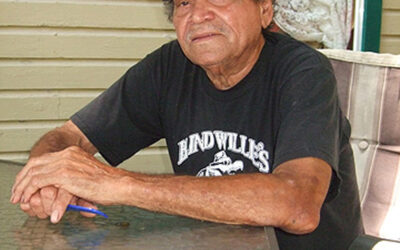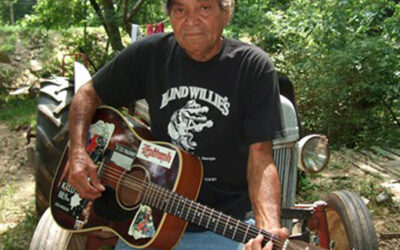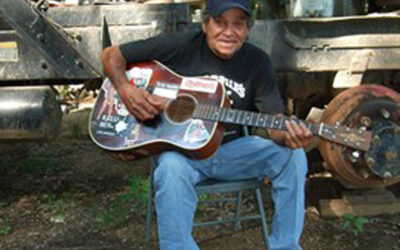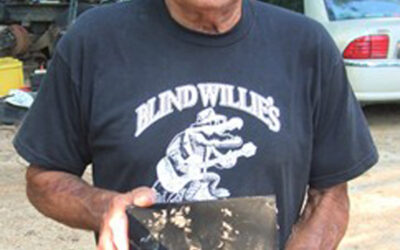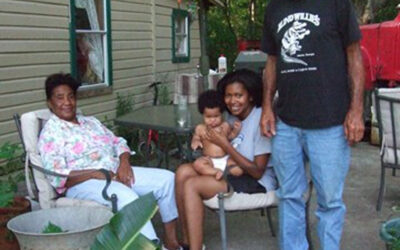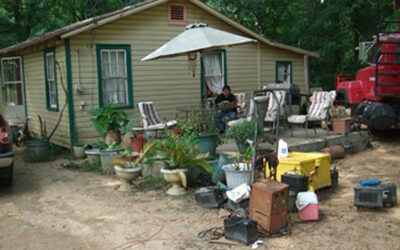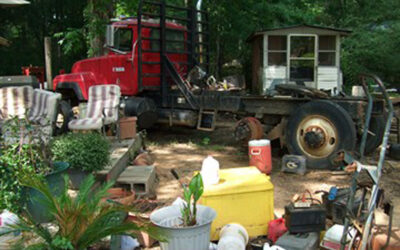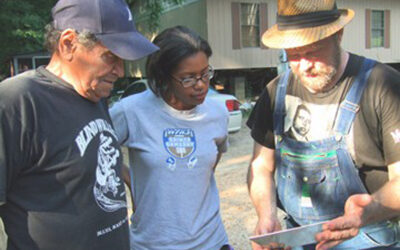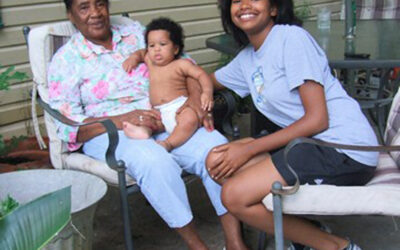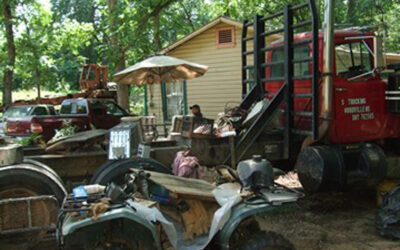Woodville bluesman Robert Cage was born in New Orleans on March 23, 1937, but his family, which has roots in southwestern Mississippi, soon moved to Natchez, where he spent his first six years. They then moved to the Percy Creek community, about ten miles west of Woodville near Lake Mary, where he lived for several decades. He recalls that the first time he heard blues was via records on the “autophone” at his mother Carrie’s juke joint, which was located next to their home. [“Autophone” was the brand name of an early coin-operated machine, though it was used generically to refer to jukeboxes]. He recalls that there were other jukes in the area, including Nancy Green’s near Port Adams.
Cage particularly enjoyed the recordings of John Lee Hooker and was also influenced by local performers who played at the juke, including guitarist Lee Baker and fiddler Nolan Cage, a relative. His most important influence, though, was the guitarist/vocalist Scott Dunbar [1904-1994], who worked as a fishing guide on Lake Mary and often performed solo at the juke. In the mid-‘50s folklorist Frederic Ramsey recorded Dunbar as well as several of his family members, and Folkways Records later issued the recordings; a photograph of Dunbar appears on the first edition of Ramsey’s 1960 book Been Here and Gone. Folklorist Bill Ferris later recorded Dunbar, and a 1970 LP of Dunbar’s music on the Ahura Mazda label, From Lake Mary, was later reissued on CD on Fat Possum.
Cage’s mother gave him a guitar when he was eleven, and he first encountered Dunbar when he was around thirteen by surreptitiously listening to him at the juke. He “studied the devil out of” Dunbar’s songs, and today still performs many of these in a style similar to that of Dunbar, including “Easy Rider,” “Who Been Fooling You,” and “Little Liza Jane.” By eighteen Cage formed his own band with his cousins Ray Trass and Little Miller, with a drummer beating on a beer box. Because of local alcohol prohibitions, they performed mostly in clubs in nearby Louisiana including the State Line Club, where they were the house band, and the Black Cat.
He later led a band called the Blues Boys that featured saxophone and trumpet players and recalls that they played a wide variety of music and that he often played just like Chuck Berry. From the late ‘80s until 2001 he often played at the Hilltop Club just south of the border in Louisiana in a band that featured his son, Vincent “Buck” Cage, on bass, and C.L. Ward on drums.
In 1997 Fat Possum Records’ Bruce Watson and Matthew Johnson traveled to Woodville to try to locate Scott Dunbar, who had died several years earlier, and were referred to Cage. They recorded him and in 1998 issued the CD Can See What You’re Doing. Cage subsequently traveled to Japan and France to perform and traveled on multiple national tours as part of the Fat Possum Juke Joint Caravan. In 2008 he appeared at the Deep Blues Festival in Minnesota together with Natchez drummer/harmonica player Hezekiah Early and occasionally performed at events in the Miss-Lou area. For many decades Cage’s primary occupation was as a mechanic for large trucks, which he repaired at his home just west of downtown Woodville.
Cage passed away on July 23, 2012.
See also:
Folklorist Frederic Ramsey’s recordings of Cage’s mentor Scott Dunbar can be found on the Folkways album Music from the South, Vol. 5: Song, Play, and Dance.
